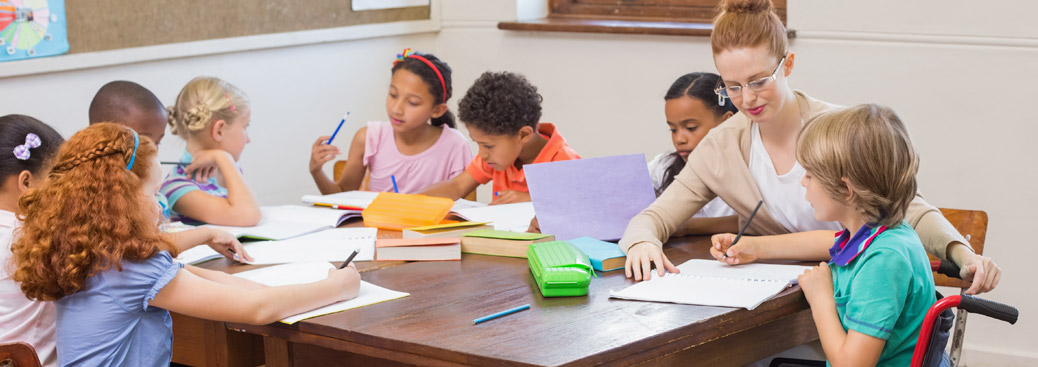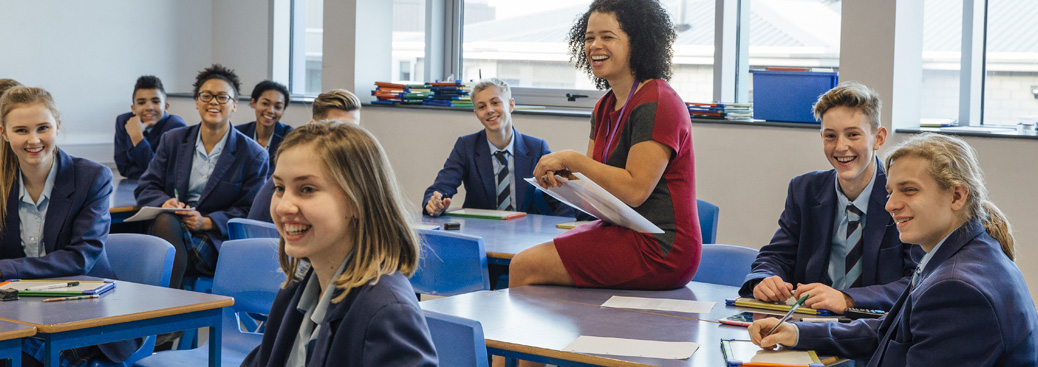Welcome to AllPlay Learn Online Professional Learning Courses
AllPlay Learn Inclusive Foundations for Children with Disabilities courses are now available for free to Victorian early childhood education and care settings, and Victorian Government primary and secondary schools.

Inclusive Foundations for Children with Disabilities – Early Childhood Education and Care
Early |
This AllPlay Learn Online Professional Learning Course will provide practical strength- and evidence-based strategies and resources that will help educators and early childhood education and care settings create inclusive education environments for children with developmental challenges and disabilities.

Inclusive Foundations for Children with Disabilities – Primary School
Primary |
This AllPlay Learn Online Professional Learning Course will provide practical strength- and evidence-based strategies and resources that will help primary school teachers and schools create inclusive education environments for children with developmental challenges and disabilities.

Inclusive Foundations for Students with Disabilities – Secondary School
Secondary |
This AllPlay Learn Professional Learning Online Course will provide practical strength- and evidence-based strategies and resources that will help secondary teachers and schools create inclusive education environments for students with developmental challenges and disabilities.
“Welcome to the AllPlay Learn online professional learning course. AllPlay is a world-first initiative to create new pathways for inclusion for children with disabilities so they can play, learn, dance and connect into the community.
AllPlay brings research, sport, dance and education together so children of all abilities can participate, including the one in five children who have a developmental challenge or disability.
The AllPlay program is an initiative of the Deakin Child Study Centre at Deakin University. It has been built in partnership with key industry bodies, grass roots community groups, researchers and clinicians.
We have comprehensive online resources for coaches, dance teachers, parents, children, and health professionals, to include children in sporting programs such as AFL Auskick football, as well as community dance schools.
AllPlay Learn is our newest program. It has been funded by the Victorian Department of Education and Training. AllPlay Learn online professional learning courses are comprehensive courses with a set of lessons to support children with disabilities in educational settings using evidence-based strategies. These courses have been created to enable inclusion in early childhood education and care settings, and primary and secondary schools. We aim to raise awareness of the strengths and abilities of children with disabilities to ensure that all those who work with them can help them reach their full potential.
The secondary school lessons are designed for secondary school teachers and education support staff. They are aimed in particular toward mainstream teachers seeking to improve the participation and learning outcomes of students with disabilities in their classes. The lessons may also be helpful to education support staff including teacher’s aides. Teachers who are highly experienced in working with children with disabilities are likely to be familiar with many of the suggested strategies and approaches. However, there are elective topics you can chose from in order to focus on learning areas relevant to your needs and context. These include areas which might not have traditionally received as much educational attention, such as teaching children with Attention Deficit Hyperactivity Disorder’.
Finally, while you can complete this course individually, we strongly encourage you to organise a group of your colleagues to discuss the lessons as you progress through the content. This can help you and your colleagues understand the unique contexts in which you work. You can learn from one another’s approaches, interpretations and reflections of the content, and from your own experiences in supporting children with disabilities. It will also help you build your support networks and increase your school’s capacity to support all children.
We hope that you consider enrolling in this course¬ and that you find the information helpful for yourselves and your students.”
![]()
What is covered in the lessons?
Core Lessons
Basics of inclusion
Questions that promote inclusion
The ABCs of behaviour
Emotions and behaviour regulation
Post-school transitions
Teacher wellbeing
Elective lessons (select two)
Anxiety
Attention-deficit/hyperactivity disorder
Autism
![]()
Who is this course for?
This course has been designed for secondary school teachers and education support staff in Victorian government schools. There may also be other professionals and secondary school staff who may wish to learn more about inclusive practices that build on student’s strengths and are evidence-based.
![]()
How long will this course take?
This course will take you 4-6 hours to complete, depending on the length and depth of your reflections, and the number of electives you choose to complete. Electives may take you 45-60min, while core content may take you up to two hours in total.

![]()
Who will you learn with?

Prof Nicole Rinehart
Nicole is a clinical psychologist and founder of AllPlay with extensive research and clinical experience working with children with developmental disorders, their families and their teachers.

Dr Ana Mantilla
Ana is an educational researcher and a senior research fellow on the AllPlay Learn program who has helped develop the AllPlayLearn digital resources and has led the focus groups with educators and families underpinning some of the content and resources developed.
![]()
Course development
This course was funded by the Victorian Department of Education and Training. The course was developed through a co-design process – a collaborative process engaging key stakeholders in creation, development and evaluation of this course.
The key participants or stakeholders in the co-design process were:

A series of scoping reviews were conducted by the Project Team to identify the strengths children with different disabilities and developmental challenges may have, and the evidence-based strategies for teaching that have been evaluated and found to be effective across early childhood education and care settings, primary schools and secondary schools. A full description of the scoping review process can be found here.
![]()
Masterclasses
Experts in specific disabilities or developmental challenges contributed through providing more in-depth discussion within masterclasses developed for some lessons.
Professor Nicole Rinehart talks about autism, Amanda Dudley talks about emotions, and Associate Professor Glenn Melvin talks about school refusal in secondary school.
We acknowledge the educators, teachers, families, students, Deakin University academic staff, Victorian Department of Education staff and peak bodies and community groups who contributed to and co-designed this project.
Director Research (Krongold) and AllPlay Founder

Nicole Rinehart (PhD, Monash University, 2000) is an international leader in neurodevelopmental disorders and practicing clinical psychologist specialising in Autism Spectrum Disorders and ADHD. She has been at the forefront of international efforts to improve the diagnosis and definition of childhood disorders, with a focus on novel neuroscientific techniques. She has held multiple NHMRC grants in collaboration with clinical colleagues at the Royal Children’s Hospital, Murdoch Children’s Research Institute, and Howard Florey Institute. Her research is inspired by families and children with neurodevelopmental conditions she has worked with over two decades at Melbourne Children’s Clinic. In 2015, Nicole founded the AllPlay program at Deakin University, which became part of Monash Education’s School of Educational Psychology and Counselling in 2021. Nicole currently serves on the Board of Directors at AMAZE (Autism Victoria). She has contributed to the NHMRC Clinical Practice Statement for ADHD and the revision of the Australian Therapeutic Guidelines for Developmental Disabilities.
Associate Professor Glenn Melvin

After training as a psychologist, Glenn completed a PhD in the treatment of adolescent depressive disorders at Monash University. For the last ten years he has conducted research into novel treatments for adolescent depression and the conceptualisation, assessment and treatment of school attendance problems, with a focus on school refusal. Together with beyondblue, Australia’s national depression and anxiety initiative, Glenn has been involved in the development and evaluation of a suicide prevention smartphone application called BeyondNow. This app allows users to document a safety plan to be used in the event of a crisis. Glenn has an adjunct appointment at the University of Warwick (UK). He has received funding from the Australian Research Council and the National Health & Medical Research Council to support his research.
Lecturer in Psychology, Faculty of Health, Deakin University

Amanda Dudley is a psychologist with over 18 years of clinical experience working with children, adolescents and their families. She has worked in a variety of settings including public hospital, clinical research, within the educational sector at primary and secondary school level as well as University and in private practice. She has significant experience in the area of child and adolescent development and mental health with particular focus on anxiety, depression, sleep, and school refusal.
![]()


